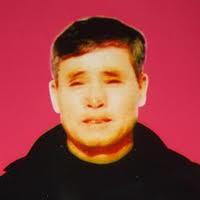Heilongjiang Activist Yang Chunlin Arrested for Organizing Open-Letter Campaign: “We Want Human Rights, not the Olympics”
Comments Off on Heilongjiang Activist Yang Chunlin Arrested for Organizing Open-Letter Campaign: “We Want Human Rights, not the Olympics”Heilongjiang Activist Yang Chunlin Arrested for Organizing Open-Letter Campaign: “We Want Human Rights, not the Olympics”
(Heilongjiang, August 31, 2007) – Yang Chunlin (杨春林), a resident of Jiamusi City (佳木斯市), Heilongjiang Province, was detained on July 6 and formally arrested on suspicion of “subversion of state power” on August 3. Yang’s arrest was apparently ordered by the Ministry of Public Security in Beijing. He is now being detained at Heitong Detention Center in Heilongjiang, and his family has not been allowed to visit him.
According to Mr. Yang’s family, the main reason for his arrest was that he had been collecting signatures to endorse an open letter titled “We Want Human Rights, not the Olympics” in villages where he had been helping farmers dealing with land disputes. The letter has reportedly been signed by more than 10,000 people, mostly Heilongjiang farmers who have lost their land. However, police told the family that Yang’s crimes included accepting funding from overseas “anti-China” organizations.
Yang Chunlin was laid-off from a state owned plant when the plant was privatized. He was detained four times in 2006 for helping farmers seeking compensation for lost land and participating in the hunger strike called by the Beijing lawyer Gao Zhisheng. Many farmers fighting forced eviction in Heilongjiang signed the petition because they sympathized with victims of land loss in cities where corrupt officials used the Olympics as a pretense to grab land/housing while providing inadequate compensations.
CHRD condemns the arrest of Yang Chunlin on suspicion of subversion because he dissented from the official line on the Olympics. This action is part of an alarming pattern of official use of China’s legal system to criminalize free speech, as indicated by several recent cases, including the arrest of Lu Gengsong in Hangzhou last week. These cases violate freedom of expression, a right guaranteed in the PRC Constitution and in international human rights principles. Unless the trend of criminalizing free speech is soon reversed, the “rule of law” image that the Chinese government has tried hard to cultivate will further suffer. So will the government’s credibility, since it had promised to improve human rights before Beijing was named the city to host the 2008 Games.
The Ministry of Public Security’s direct involvement in ordering Yang’s arrest, and the subversion charge against him, point to the nervousness and political sensitivity with which the government views efforts to link the Olympics and human rights. While the government has repeatedly accused critics of its abuses of human rights of “politicizing sports,” it is the government that has made expression of views about the Olympics a political crime. This makes the arrest of Yang Chunlin particularly alarming.

